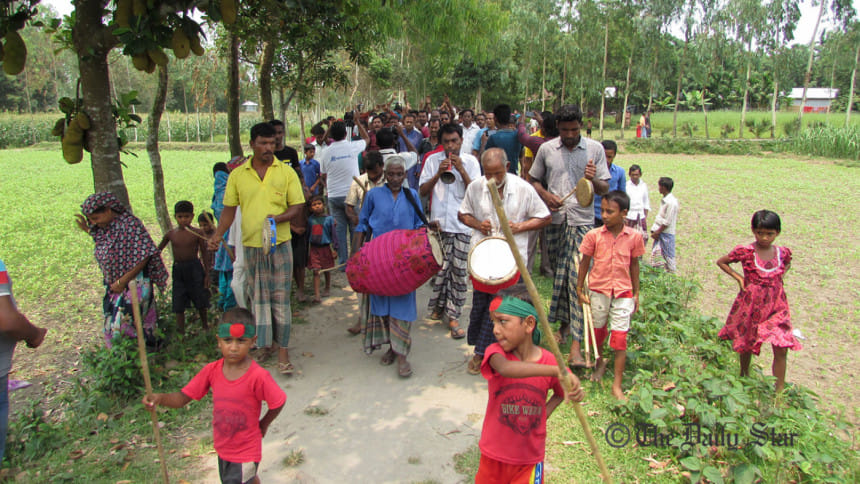‘We will have true identity, finally’ (video)
For sixty-year-old Nur Hossain, it was a day of great joy and a dream come true – as if he was born anew.
"It is a day I never thought would come," the sexagenarian said welling up with tears of joy. He believes it will not be long that he and the people of his community will finally have a true identity.
Last week, India paved way for the historic land boundary deal with Bangladesh which will ratify the long standing enclave swap deal between the two countries.
And it is the looming reality of implementation of the enclave swap that has triggered a wave of delight through the stranded Indian lands inside Bangladesh's Panchagarh.
"Finally, we will get our nationality," elated Nur Hossain of Garati enclave said. "And from now, we won't have to hide our true identity to get our children admitted to the schools."
"Our children do not get government jobs though they passed from Bangladeshi schools and colleges. Our daughters are often victims of torture because they aren't entitled to registered marriages. And, we can't access legal assistance if faced with criminal offence."
Nur Hossain believes such days are over and so do the habitants of Garati.

For enclave residents, life is difficult everywhere, fifty-year-old Morium Begum, a local of Garati, says. "It is a life of deprivation. Even the hospitals don't allow us treatment if they know we are residents of an Indian enclave."
Under the land boundary agreement (LBA) Bangladesh will take in 111 enclaves of India and give away 51 of its own. The arrangement will enable residents of the adversely possessed areas to the basic amenities as citizens of respective countries.
Last week, India's Rajya Sabha and Lok Sabha endorsed the landmark constitution amendment bill that will pave way for passage of the agreement with Bangladesh.
"We are now hopeful of implementation of the enclave exchange deal soon as India's Rajya Sabha passed the bill and hopefully it would take way smoothly with whatever necessary," said Toslim Uddin, chairman of Puthimari enclave inside Panchagarh's Boda upazila.
"People here have been cheering for the last few days since Rajya Sabha passed the bill. Sweetmeats were distributed everywhere and colourful parades were brought out."

Sirajul Islam, chairman of Shalbari Indian enclave in the same upazila, hopes that it will not be long that he and his people will enjoy benefits including education, health and others as citizen.
"We here live in awful condition with lack of employment opportunity, infrastructure, education, power, medical and other facilities. We are all mostly here below poverty level," said Mofidar Rahman, chief of Garati enclave inside Panchagarh Sadar.
According to official estimates, the Indian enclaves in Bangladesh include 59 in Lalmonirhat, 36 in Panchagarh, 12 in Kurigram and four in Nilphamari. All of the Bangladeshi enclaves in India are located in India's Cooch Behar.
A joint census conducted in July 2011 found 37,334 people are living in Indian enclaves inside Bangladesh and 14,215 people in Bangladeshi enclaves inside India.

 For all latest news, follow The Daily Star's Google News channel.
For all latest news, follow The Daily Star's Google News channel. 



Comments